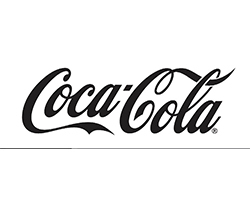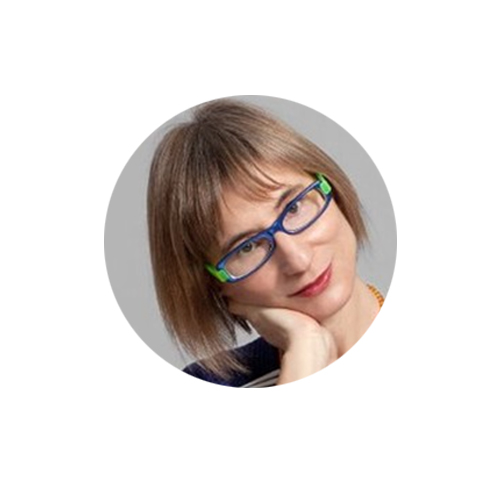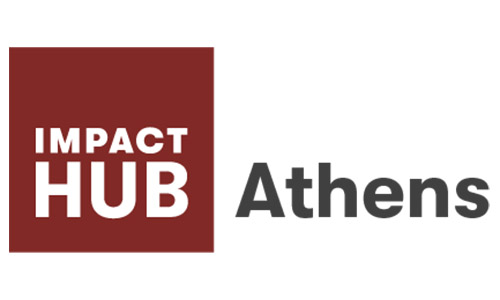
How can we develop the first Zero Waste HoReCa businesses (Hotels, Restaurants, Cafes) in Greece?
- “What if we could develop a Zero Waste Future HoReCa Network in Greece formed by hotels, restaurants & cafes, leveraging digital tools to encourage them to pursue a ‘zero waste’ prospect?”
- What could be if HoReCa businesses came together under a digital hub / or other framework and remain incentivized when it comes to their sustainability efforts? What if this could increase their revenues by attracting more consumers?
The challenge
The goal of this challenge is to create the 1st Zero Waste Future HoReCa Network in Greece formed by hotels, restaurants & cafes, leveraging digital tools. For the purposes of this challenge, the Zero Waste Future platform developed by Coca-Cola in Greece should be leveraged as a strong asset and starting point to educate and support businesses in their sustainability quest. Yet, the question remains on how we can incentivize, motivate, reward and bring together businesses in the HoReCa sector in a common effort to pursue a “zero waste” prospect. The HoReCa industry is a highly decentralized one, so how can we approach them and introduce them to the principles of a Zero Waste Future encouraging a proactive rather than a reactive stance? How can we get more businesses interested in the merits of a sustainability strategy? How can this network be developed leveraging digital tools? What rewards can we offer in order to keep the businesses incentivized and interested? How can we also engage consumers in this process and connect them with these businesses so that this network is also rewarded by consumer preference?
Why is this Initiative is Important
This exercise is important as both the European and national frameworks take increasing steps and have proceeded with regulations towards protecting our planet from waste pollution and marine littering. In recent years, sustainability has risen at the top of the political and social agendas. As the notion of a circular economy becomes more popular, leaders from around the world are realizing the important correlation between the “zero waste” philosophy and business performance. Sustainability is becoming more important for all businesses – small and large – across all industries, as having and operating within a strong sustainability strategy is considered necessary for them to remain competitive today, build back better in the after COVID era and secure their longevity, i.e. a sustainable future. As a business approach, sustainability is seen as a key to creating long-term value by weighting how a business operates in the ecological, social and economic environments. What is largely missing is for businesses to understand that sustainability should be an indispensable part of their strategy and should be integrated in their business model. In parallel, the HOReCa industry generates approximately 25% of the total waste in Greece, a high percentage that if increased can great contribute to the total recycling numbers in Greece. The sector also employees 400.000 to 450.000 people, who can play a central role if educated. Since 2018, Coca-Cola in Greece is working closely with strategic partners, including the Ecological Recycling Company to educate businesses, monitor their performance and increase recycling levels on a national level. It is of crucial importance to elevate this community initiative from a social impact platform to a strong network / community of businesses by further incentivizing them to acquire a “zero waste” prospect. We only have one planet. And packaging waste has no place in it. Instead of being part of the problem, we intend to be part of the solution.
The challenge owner
At The Coca-Cola Company, we believe in doing business the right way not the easy way. We act in ways to create a more sustainable and better shared future. Among other strategic priorities, we are taking a leadership role in with our strategy focused on a World Without Waste by making packaging part of a circular economy. We aim to make our global packaging 100% recyclable by 2025. We aim to collect and recycle a bottle or can — regardless of where it comes from — for every one we sell by 2030. To make it we work with stakeholders, nonprofits, communities, governments and our industry to recycle and reuse. In Greece, since 2018 and as part of our global World Without Waste strategy we have been taking action, by launching Zero Waste Future. Zero Waste Future is a community program aiming to promote the idea of circular economy and shape consumer behavior. It focuses on increasing recycling rates, improving waste management and giving second life to waste via the use of cutting-edge technologies. The platform’s architecture is based on three main pillars: Intervention [where we pilot innovative for Greece processes, mechanisms & infrastructure], Education [as a key part of all the initiatives aiming to train different audiences like professionals, students, customers, employees & citizens on the main idea and principles of circular economy and zero waste], and Behavioral change [as a result of the initiatives included in the above 2 pillars as well as through consumer engaging campaigns & activations leveraging technology]. For its execution, we are collaborating with a credible network of different partners, in this way securing the program’s credibility, implementation and maintenance but also incorporating cutting edge technologies showcasing how social innovation can become a catalyst of accelerated future sustainable growth. So far, Zero Waste Future community program has been deployed in 3 phases: We began by Experimenting in 2018. Experimenting on the idea and its cascading to different audiences using a mix of vehicles in order to help people familiarize themselves with the idea of Zero Waste & Circular Economy. We continued in 2019 by Establishing the concept of Zero Waste and the program itself by also adding new initiatives that could facilitate and accelerate people’s familiarization And in 2020 we have tried to expand it in new territories but at the same time being agile adapted it to fit in the new circumstances as they are shaped by COVID 2019. When it comes to results, we have successfully managed to collect 515 tons of waste from Greek cities and beaches, informed more than 480.000 citizens and develop approximately 1600 3D printed furniture from 100% recycled plastic. This year, we are piloting the Zero Waste Future platform in the HoReCa industry. Starting from September 2020, we will be collaborating with more than 50 HoReCa businesses in Gazi area in the center of Athens aiming to give them a ‘zero waste’ prospect. “Zero Waste Future Gazi” will intervene in the businesses by placing 4 -stream recycling bins, educate employees and customers with special trainings and informational leaflets accordingly, and will aim for a behavioral change in the area. What is more, we will provide a “green mobile van” which will take rounds in different areas in the Athens city center to collect recyclable waste for households and reward citizens with discount coupons for the HOReCa businesses that are participating in the program. ZW Gazi will be accompanied by a wide citizens’ awareness and engagement campaign. 
PARTICIPANTS
Denny Kallivoka
Founder, Executive Director Metron Ariston- Making Responsibility a Trend
Konstantina Samprovalaki
Food Technologist MSc PhD
Attica Regional Authority
Giannis Liaros
General Manager
Hellenic Association of Organized Food & Beverage Companies
Alexandra Tsatsou
Architect specialized on Urban Planning & Climate Change
Member of European Parliament Petros Kokkalis Office / KOSMOS Association
Katerina Evangelinou
Director of the Public Port Authority of Ministry of Shipping and Island Policy
Ioannis Lalos
Elena Kalimeri
Community & Programming
Impact Hub Athens

Facilitation by
Betty Tsakarestou is Associate Professor and Head of ADandPRLAB & Director of Mass Media Division, Department of Communication, Media and Culture of Panteion University. She is Branding Chair & European Research Liaison for International Communication Division at The Association for Education in Journalism and Mass Communication (AEJMC). BoD member of the Institute of Communication. She is an International Exchange Alumna of Study of U.S. Institutes on Journalism and Media of U.S. Department of State, named as International Exchange Alumna of the Month, and featured in “Women Changing Greece,” video series by U.S Embassy Athens. She has been visiting lecturer at Copenhagen Business School, the University of Cyprus and visiting researcher at Tow-Knight Center for Entrepreneurial Journalism, CUNY J- School. As Head of ADandPRLAB she has initiated cross-sector educational and innovation partnerships with leading communication and business organizations, digital media, startups and social innovators. In partnership with Inside Story, they have co-designed #YourStory 2 & 3, through co-creation workshops, engaging readers and journalists in collaborative storytelling. She has co-organized Startup Weekends and Startup Labs, to engage university students in startup entrepreneurship, including the Startup Weekend on “Entrepreneurial Journalism” with the support of U.S. Embassy Athens and in collaboration Tow-Knight Center for Entrepreneurial Journalism and, Athens Startup Weekend on Audio and Radio Innovation and Summit in partnership with Antenna Music. With the support of Stavros Niarchos Foundation, she participated with students from Panteion University at the Center for Strategic and International Studies (CSIS) Journalism Bootcamp, in Washington, D.C. Betty has organized several co-creation and design thinking workshops since 2012 in collaboration with Copenhagen Business School (2012, 2014) Syngrou Network for the Environment and Sustainable Development (2019) corporate partners and municipalities (2014, 2018,02020) focusing on Cities as platforms for social innovation. Betty is working in implementing design thinking co creation workshops in collaboration with Inside Story digital medium, engaging journalists, readers and communities in jointly addressing challenges, prototyping solutions, through co-storytelling. She served as the Director for Educational Radio-Television at the Ministry of Education focusing on its digital transition (2010-2012) and served at the editorial board of the monthly “Tribute of Ideas” at Lambrakis Press.


